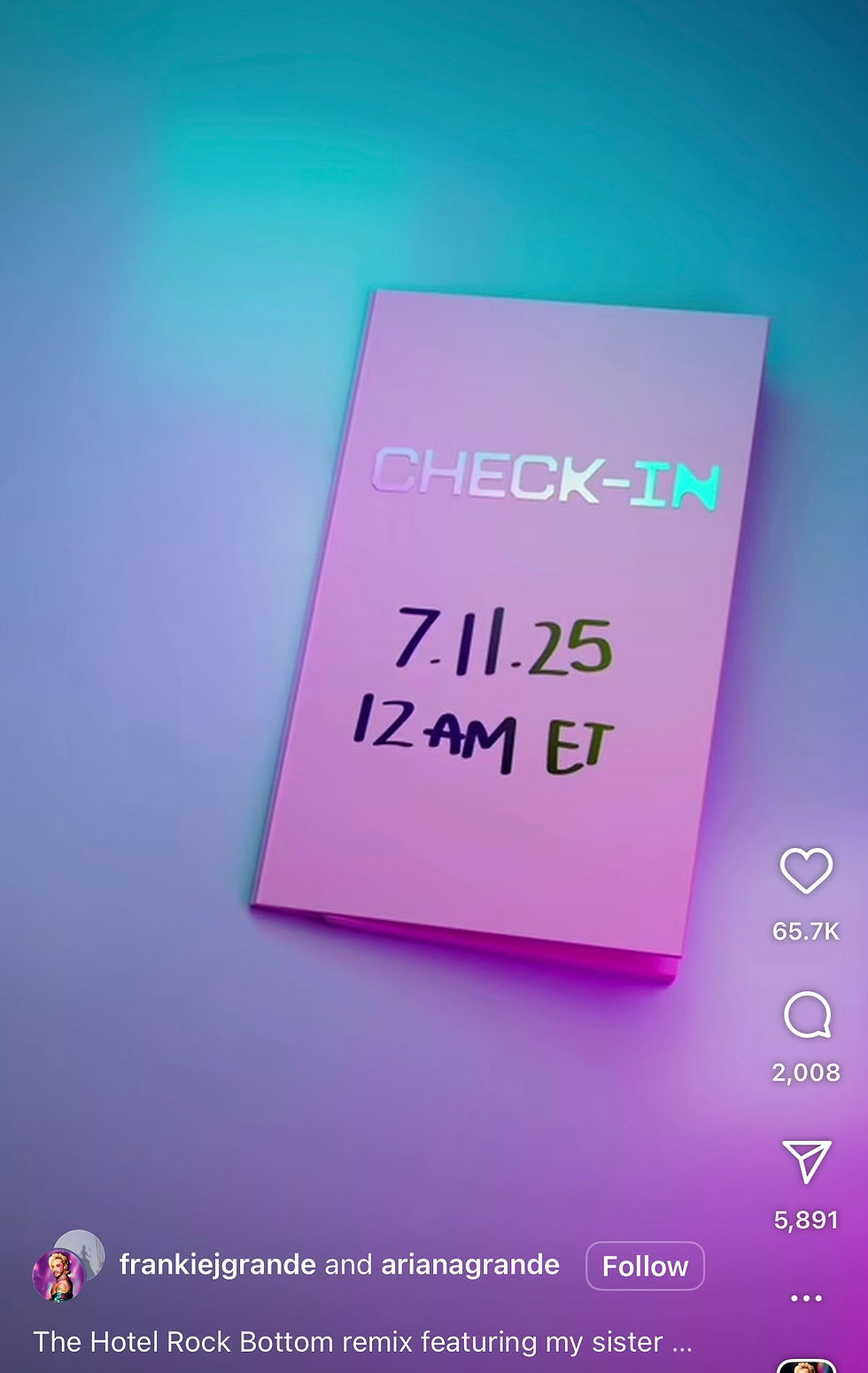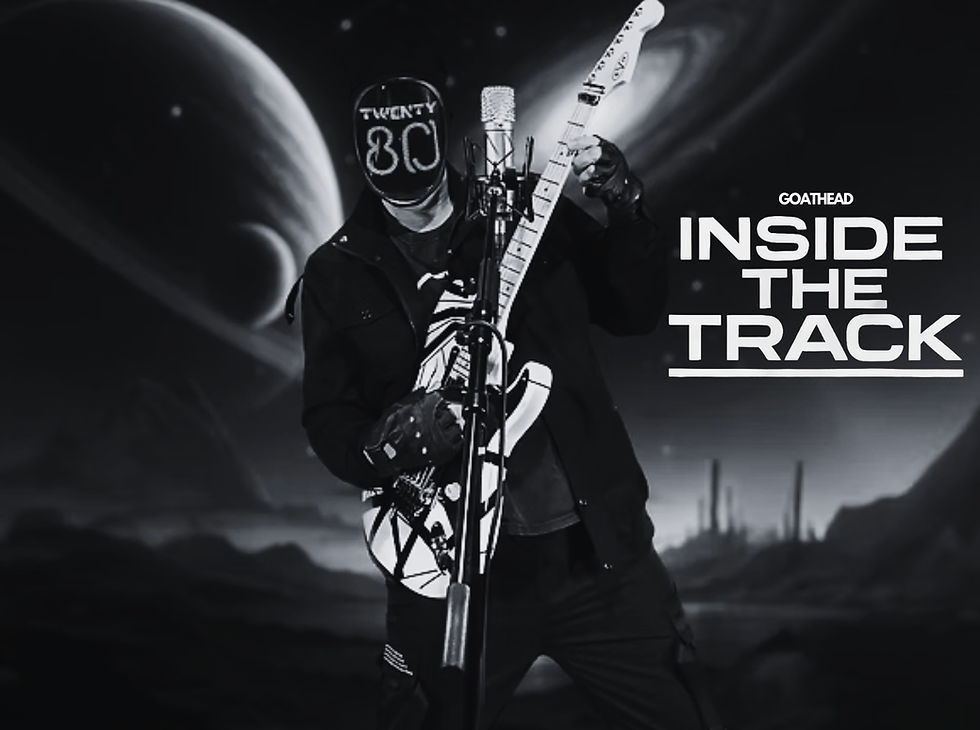How Social Media Took Over the Music Industry...for Good.
- Editorial Board

- Jul 29, 2025
- 4 min read
From discovery to obsession, fans now follow content before songs, reshaping how music is consumed, shared, and sold.

If Video Killed The Radio Stars, Social Media killed both, the Video and The Radio Star
What’s left is a low-IQ content machine dressed in aesthetic filters, fake hype, and full-blown brain rot. Artists aren’t being discovered for talent anymore. They’re being fed into a scroll-hungry algorithm that rewards stupidity, repetition, and zero effort. And no, this isn’t clever stupidity. Not punk. Not subversive. Just flatline garbage.
What trends today isn’t music. It’s the sound of nothing, sped-up, poorly performed throwaways with no soul. Meme audios with no purpose. Hooks so lazy they sound like parody, recycled so often they lose any shred of meaning. It’s not a bug in the system—it is the system.
The majors aren’t fighting it. They embraced it feeding it. A&R departments have been gutted for years, replaced with “sound specialists” whose job is to chase last week’s viral moment. For them, adapting meant handing million-dollar campaigns to 15-year-old influencers who used to dominate the old Musical.ly days. And to be fair, back then, those teens had real power. A kid with 150 million followers could launch a song better than any radio station. (Now they're lucky they get $15 for a post with the same amounts of following.)
But then the platforms swallowed them too. Flattened them like it did everything else.
Crushed reach. Killed discovery. Turned everything into a pay-to-play model where clueless artists burn $250 just to annoy strangers with their music. (That’s on you, by the way, we told you there’s a smarter way to run Meta ads.)
TikTok didn’t elevate music. It deleted it. It replaced the song with a sound.
Not a good sound. Not a meaningful one. Just a clickable, loopable, skippable and laughable noise. And that’s what’s getting "signed" (or licensed, because a viral sound goes unpapered, not funded). That’s what’s getting millions of plays yet dimes in payments.
Even the Giants Are Falling: How Major Artists Are Taking Hits in the New Music Economy
Even major artists are taking hits. Labels are dropping millions on carefully curated rollouts that barely register, 10k likes on a high-budget short, while a low-effort song about corn racks up millions of plays and reuses.


Creativity didn’t get crushed by "capitalism", it got flattened by clout and a zombie audience looking for the next dopamine fix, feeding it.
And now you, the artist, are stuck in a system that wants you to dumb it all down:"Make it shorter.""Make it trendier.""Add a stupid line that might hit Reels."
Result? Everyone's chasing the sour grape. Everyone's chasing a moment instead of building a legacy. Consumer's behavior has changed, and there's not going to be a full come-back. We’re not in the music business anymore. We’re in the noise economy.
The Spotify "Music Discovery" Echo-Chamber
Early half of American music fans say Spotify is their go-to platform to follow music, but not to discover it. (Majority of Americans will also use Apple Music or YouTube Music).
Discovery on Spotify is passive, personalized, and built to loop users back into what they already like. For Gen Z and younger fans (16–24), the real discovery engines are TikTok and YouTube—not Spotify. And if you’re a new artist? Good luck. Spotify’s algorithm is rigged for the already-famous. It creates a winner-take-all system where a tiny elite gets most of the streams. Unless you've already paid your way into traction, you're not getting surfaced, no matter how many times you hit “Submit to Playlist.” It’s a black hole.
You’re not just competing with other artists. You’re competing with the internet’s short attention span. Your song isn’t up against Drake or Doja, trust us, they are struggling on their own, it’s up against Ballerina Frappuccina and whatever the f*ck that viral nonsense is clogging feeds this week.
Want visibility? Remix Bombardino Croccodilo or whatever the hell that was. Maybe then the algorithm will notice you. Otherwise? Spotify won’t hand you an audience. You’ll have to build one, elsewhere.
So That’s It? Social Media’s Rigged by Stupidity. Spotify’s Rigged by Labels. Now What?
It’s true, this era feels like a trap. Even for majors, (imagine blowing millions to "break" an artist who pulls 10k likes on a polished short-form video, while some random song about corn racks up millions in engagement and gets reused without having to pay "influencer campaigns" across the entire internet.)
Social media rewards the dumbest content in the room. The flatter, the better. Platforms like TikTok hand attention to absurdity, while real art gets buried under prank videos and sped-up garbage. Meanwhile, Spotify isn’t a discovery tool, it’s a glorified leaderboard controlled by major labels and backed by algorithms that keep the same handful of artists at the top.
So where does that leave you, the independent artist trying to break through with something real?
Surprisingly, in a better place than you think. Because here’s the truth: people are still hungry for substance, not just corn. They’re just not finding it where the algorithm wants them to look.
When an artist does cut through, with quality, strategy, honesty, and actual originality, it spreads. Slowly, and maybe. But it spreads. Not because the system helps them, but because real connection still matters more than fake hype.
You don’t need to become a meme. You don’t need to remake AI trash. What you need is clarity, of voice, of vision, of brand and talent. And yes, it has to look good (or genuine).
It has to sound good. Quality matters more now than ever, because it’s the only thing that stands out in the chaos of AI, dank memes, brain-rot, self produced artists and labels packaged million dollar acts.
There’s still light at the end of the tunnel, but you’re not going to reach it with shortcuts.
So if you’re serious about this? Get serious about how you show up. Build something so undeniable it doesn’t need the algorithm’s permission, it just breaks it.


